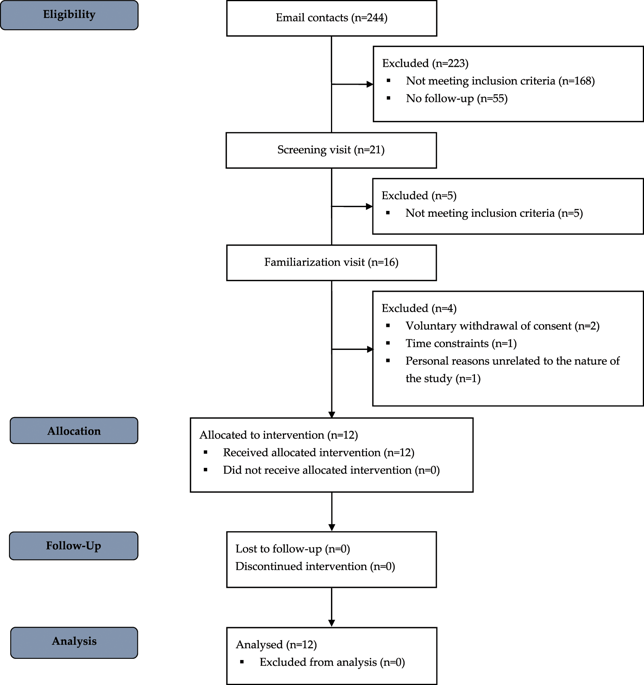当前位置:
X-MOL 学术
›
Nutr. Diabetes
›
论文详情
Our official English website, www.x-mol.net, welcomes your
feedback! (Note: you will need to create a separate account there.)
Effect of nutritive and non-nutritive sweeteners on hemodynamic responses to acute stress: a randomized crossover trial in healthy women.
Nutrition & Diabetes ( IF 4.6 ) Pub Date : 2020-01-02 , DOI: 10.1038/s41387-019-0104-y Jérémy Cros 1 , Lucie Bidlingmeyer 1 , Robin Rosset 1 , Kevin Seyssel 1 , Camille Crézé 1 , Nathalie Stefanoni 1 , Philippe Schneiter 1 , Luc Tappy 1
Nutrition & Diabetes ( IF 4.6 ) Pub Date : 2020-01-02 , DOI: 10.1038/s41387-019-0104-y Jérémy Cros 1 , Lucie Bidlingmeyer 1 , Robin Rosset 1 , Kevin Seyssel 1 , Camille Crézé 1 , Nathalie Stefanoni 1 , Philippe Schneiter 1 , Luc Tappy 1
Affiliation

|
BACKGROUND
The mechanisms by which chronic stress increases the risk of non-communicable diseases remain poorly understood. On one hand, chronic stress may increase systemic vascular resistance (SVR) and blood pressure, which may lead to blood vessels injury and altered myocardial perfusion. On the other hand, chronic stress may promote the overconsumption of sugar-containing foods and favor obesity. There is indeed evidence that sweet foods are preferentially consumed to alleviate stress responses. The effects of nutritive and non-nutritive sweeteners (NNS) on hemodynamic stress responses remain however largely unknown.
OBJECTIVE/DESIGN
This study aimed at comparing the effects of sucrose-containing and NNS-containing drinks, as compared to unsweetened water, on hemodynamic responses to acute stress in twelve healthy female subjects. Acute stress responses were elicited by a 30-min mental stress (5-min Stroop's test alternated with 5-min mental arithmetic) and a 3-min cold pressure test (CPT), each preceded by a resting baseline period. Hemodynamic stress responses were investigated by the repeated measurement of mean arterial pressure and the continuous monitoring of cardiac output by thoracic electrical bioimpedance measurement. SVR was selected as a primary outcome because it is a sensitive measure of hemodynamic responses to acute stress procedures.
RESULTS
With all three drinks, SVR were not changed with mental stress (P = 0.437), but were increased with CPT (P = 0.045). Both mental stress and CPT increased mean arterial pressure and heart rate (all P < 0.001). Cardiac output increased with mental stress (P < 0.001) and remained unchanged with CPT (P = 0.252). No significant differences in hemodynamic responses were observed between water, sucrose and NNS (stress × condition, all P > 0.05).
CONCLUSIONS
These results demonstrate that sucrose and NNS do not alter hemodynamic responses to two different standardized acute stress protocols.
中文翻译:

营养性和非营养性甜味剂对急性应激的血液动力学反应的影响:健康女性的随机交叉试验。
背景技术关于慢性压力增加非传染性疾病风险的机制仍然知之甚少。一方面,慢性压力可能会增加全身血管阻力(SVR)和血压,从而可能导致血管损伤和心肌灌注改变。另一方面,慢性压力可能会促进含糖食品的过度消费并促进肥胖。确实有证据表明,优先食用甜食以减轻压力反应。营养性和非营养性甜味剂(NNS)对血流动力学应激反应的影响仍然未知。目的/目的本研究旨在比较含糖和含NNS的饮料(与不加糖的水相比)对十二名健康女性受试者对急性应激的血液动力学反应的影响。急性应激反应是由30分钟的精神压力(5分钟的Stroop测验与5分钟的心理算术交替)和3分钟的冷压力测验(CPT)引起的,每个实验都在基线期休息。通过重复测量平均动脉压和通过胸腔电生物阻抗测量连续监测心输出量来研究血流动力学应激反应。选择SVR作为主要结局是因为它是对急性应激过程的血液动力学反应的敏感指标。结果在所有三种饮料中,SVR都不会随着精神压力而改变(P = 0.437),而随着CPT的增加(P = 0.045)。精神压力和CPT均会增加平均动脉压和心率(所有P <0.001)。心输出量随精神压力增加(P <0.001),而CPT则保持不变(P = 0.252)。在水,蔗糖和NNS之间没有观察到血液动力学反应的显着差异(压力×条件,所有P> 0.05)。结论这些结果表明,蔗糖和NNS不会改变对两种不同的标准急性应激方案的血流动力学反应。
更新日期:2020-01-02
中文翻译:

营养性和非营养性甜味剂对急性应激的血液动力学反应的影响:健康女性的随机交叉试验。
背景技术关于慢性压力增加非传染性疾病风险的机制仍然知之甚少。一方面,慢性压力可能会增加全身血管阻力(SVR)和血压,从而可能导致血管损伤和心肌灌注改变。另一方面,慢性压力可能会促进含糖食品的过度消费并促进肥胖。确实有证据表明,优先食用甜食以减轻压力反应。营养性和非营养性甜味剂(NNS)对血流动力学应激反应的影响仍然未知。目的/目的本研究旨在比较含糖和含NNS的饮料(与不加糖的水相比)对十二名健康女性受试者对急性应激的血液动力学反应的影响。急性应激反应是由30分钟的精神压力(5分钟的Stroop测验与5分钟的心理算术交替)和3分钟的冷压力测验(CPT)引起的,每个实验都在基线期休息。通过重复测量平均动脉压和通过胸腔电生物阻抗测量连续监测心输出量来研究血流动力学应激反应。选择SVR作为主要结局是因为它是对急性应激过程的血液动力学反应的敏感指标。结果在所有三种饮料中,SVR都不会随着精神压力而改变(P = 0.437),而随着CPT的增加(P = 0.045)。精神压力和CPT均会增加平均动脉压和心率(所有P <0.001)。心输出量随精神压力增加(P <0.001),而CPT则保持不变(P = 0.252)。在水,蔗糖和NNS之间没有观察到血液动力学反应的显着差异(压力×条件,所有P> 0.05)。结论这些结果表明,蔗糖和NNS不会改变对两种不同的标准急性应激方案的血流动力学反应。









































 京公网安备 11010802027423号
京公网安备 11010802027423号